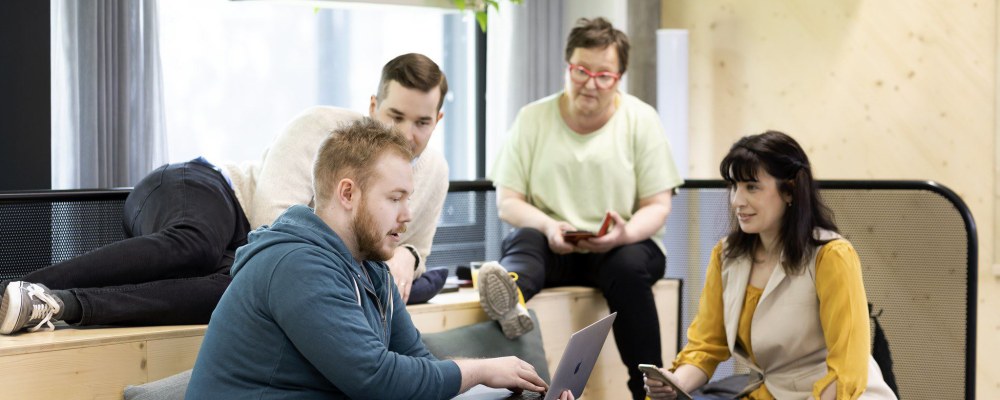
As the saying goes, friends are the family we choose for ourselves. But what about co-workers? They are people who often come into our lives without our bidding, as by-products of our job, as it were. Yet they are people we spend a lot of time with, sometimes even more time than with our families.
Time, in fact, is the reason why we should put some effort into our co-worker relationships.
“Considering how much time we spend at work, wouldn’t it be nice if this time felt meaningful and rewarding?” asks Marianne Hemminki.
“Co-workers can lend you support, help you learn new things and give you perspectives for solving your problems and encouragement to reach your goals. Co-workers help you enjoy your time at work. Nothing feels more rewarding than sharing your accomplishments as well as your blunders with others,” says Terhi Vesterinen.
Co-worker relationships require maintenance
Co-working skills are part of a person’s professional skills. Good co-working skills strengthen the work community and its wellbeing. They include interaction, networking and influencing skills.
“These skills are applied in everyday interactions. A good co-worker listens, concentrates on what the other person is saying and helps them continue their train of thought by asking questions,” says Terhi Vesterinen.
Marianne Hemminki encourages everyone to develop their co-working skills. For example, changes in an organization or a team require co-working skills, but a skilled co-worker can easily adapt to new situations and people.
“Being a good co-worker means different things for different teams and organizations. The culture of the workplace creates expectations for co-worker relationships, for example in terms of whether people are expected to attend the social gatherings of co-workers. If the success of your work depends on cooperation, being a good co-worker may mean socializing after work, even if you don’t feel like it. It is a matter of understanding the common good,” says Hemminki.
“Then again, good co-workers also respect diversity and the differences between people. If someone has small children, for example, it is understandable that they cannot always make it to social gatherings,” Vesterinen adds.
She points out that co-worker relationships are just like any other human relationship. They do not last if you do not maintain them. Sometimes you need to be flexible and meet your co-worker halfway, whereas sometimes they need to show flexibility. Sometimes your co-worker needs to know you have their back, whereas other times you need to challenge them.
“A good co-worker, for example, encourages their colleagues to ask for help and to talk about their problems with a supervisor. On the other hand, being a good co-worker also means challenging other people's thinking: why do you think so, could you explain this, are things really that bad here at work?”